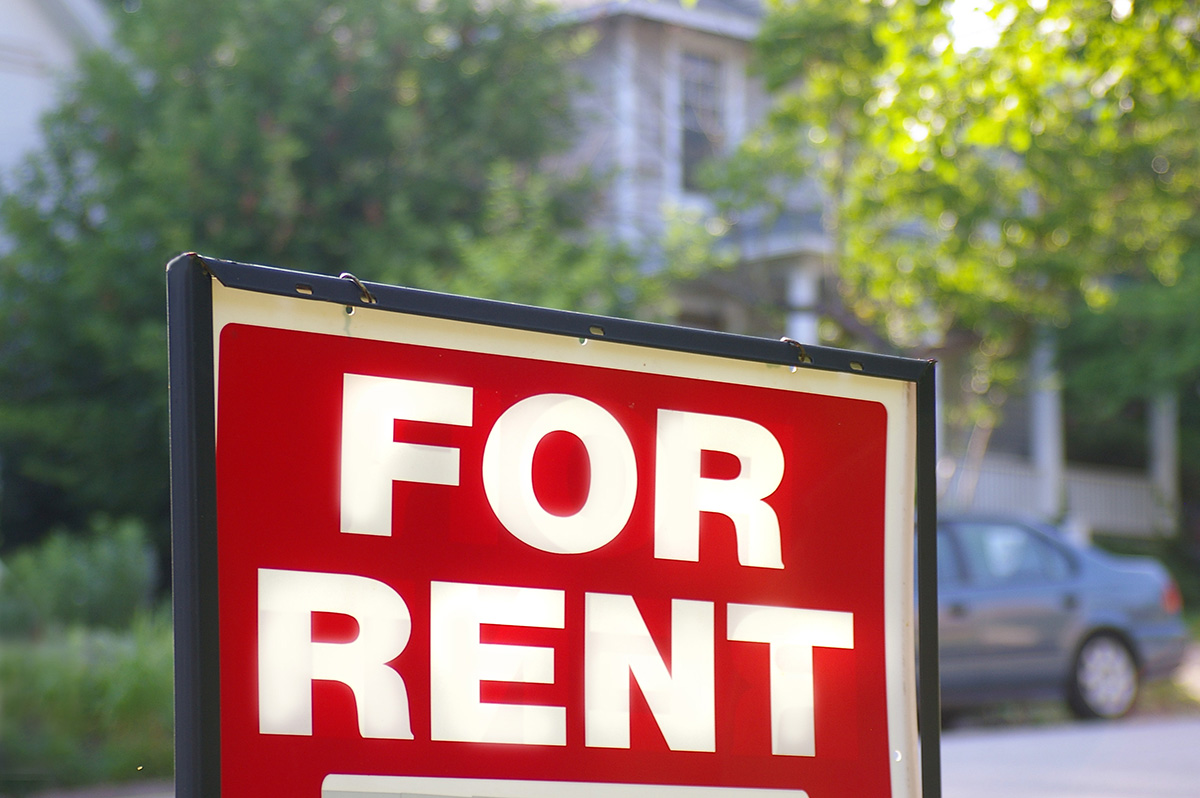Real Estate
The fourth Wise Man: a fractured Christmas story
Mary and Joseph and their $1,400 refundable child tax credit


Once upon a time Mary and her husband, Joseph, were directed to return to their ancestral home to register for the Tax Cut and Jobs Act.
Whether you celebrate Christmas, Hanukah, Kwanzaa, or my personal favorite, Date Nut Bread Day (it’s today!), traditions abound during the holiday season.
Most traditions involve the gathering of family and friends at someone’s home and the consumption of mass quantities of food and, often, drink – sort of like a football game with religious overtones.
As a child, my Nana and I used to play a game of Who Can Tell the Biggest Lie and it’s in the spirit of that game and in remembrance of my late Nana (and not to offend anyone) that I tell you the story of The Fourth Wise Man as it was loosely told to me many years ago.
Once upon a time Mary and her husband, Joseph, were directed to return to their ancestral home to register for the Tax Cut and Jobs Act. Mary was pregnant and the idea of getting their $1,400 refundable child tax credit from Marco Rubio was enticing.
The couple booked a flight to Bethlehem out of Hartsfield-Jackson International Airport in Atlanta, but as luck would have it, they were stranded there for two days due to power outages and lost their hotel reservations.
Mary was exhausted after the flight, but little baby Jesus was coming fast so she sent Joseph down to JC Penney for some swaddling clothes. As soon has her contractions were three minutes apart, she pinged Joseph on his cell phone.
He came rushing back by Uber, upon which Mary gave birth on that cold, starry night in a shed that lacked central heating because all the Airbnbs in Bethlehem were full.
Meanwhile in the suburbs, some men were tending to their sheep (didn’t I tell you it was a cold night?) when they spotted a bright light in the sky. Lo and behold, it was an angel riding a unicorn and carrying a Bell and Howell Tac Light Lantern (As Seen On TV).
The shepherds looked at each other quizzically, but the angel said, “Fear not, for I have news of the birth of your Savior in Bethlehem – a child who will be king. And I’ve brought bacon.”
Then more angels came and chatted for a while and the shepherds, being good hosts, broke out a flacon of Prosecco to share with everyone before leaving for Bethlehem. There they found the baby lying in a manger and immediately tweeted out the news to their friends and posted a selfie with Mary and Joseph on Facebook.
In another land far, far away, wise men who were gathered at a meeting of the United Nations Security Council received the tweet on their iPhones. Suddenly, something bright shone the sky.
“It’s a bird,” cried Balthasar. “No, it’s a plane,” exclaimed Melchior. “I’m a scientist and I say it’s a star,” said Gaspar proudly. “Let’s check it out,” suggested Fred, the Fourth Wise Man, “but first, let’s stop at Neiman’s to pick up a baby gift.” So, they did.
Well, as luck would have it, en route to Bethlehem, they ran into King Roy Moore who was sitting astride his camel and blocking their path. “Hey, Roy,” said Fred. “Is that a pistol in your pocket or are you glad to see me?”
“Bless your heart, Fred,” replied Roy. “I see you’re wearing your gay apparel. Have you heard about the baby born in Bethlehem?” “Yes, answered Fred, “We’re on our way to meet him now as soon as we stop for brunch. Care to join us?”
“Nah, you guys go on ahead. Cash me outside, how bow dah?” said Roy who was actually plotting against the baby, so he could continue being king.
In Bethlehem, the wise guys presented their gifts to Baby Jesus.
“I offer you this photo of gold,” said Balthazar. “You can visit the real stuff at Fort Knox. Just call Steven Mnuchin so you can use his plane.”
“I offer you frankincense,” said Melchior. The baby sneezed.
“I offer you myrrh,” said Gaspar. Mary rolled her eyes at Joseph and whispered, “WTF is myrrh?”
“I’ve got this, guys,” said Fred. “I offer Baby Jesus a tuition-free, science-based college education so he can study ways to combat climate change, save the world and bring us peace on Earth.”
“You win,” said Joseph, “but we’d better hit the road. I hear King Roy Moore is coming for our children.”
So, they fled to Nazareth in the suburbs of Galilee, where Baby Jesus grew to be a man who wore gender-neutral clothing, celebrated diversity, ministered to the poor and the sick, and preached love and tolerance for all.
Way to go, Jesus!
Valerie M. Blake is a licensed Associate Broker in D.C., Maryland and Virginia and Director of Education & Mentorship at Real Living|At Home. Call or text her at 202-246-8602, email her at [email protected], or follow her on Facebook at TheRealst8ofAffairs.
Real Estate
Find a way to participate in the sharing economy
Earn extra cash by walking dogs, renting your car, and more

If you could turn back time, would you find a way to participate in the sharing economy? If you own a home, a car, or have other resources or skills, you may still be able to. So don’t fret, SNAP OUT OF IT! (Anyone getting the Cher references so far?)
Recently, companies like AirBnB, VRBO, Uber, Lyft, Couchsurfing, Upwork, TaskRabbit, LendingClub, Poshmark, Meowtel, Rover, and Neighborgoods (among others) are allowing people to share their resources. Goods and services such as cars, money, homes, couches, clothing, business skills, tech or maintenance, design, dog walking, financial and accounting help, graphic design, among other skills can be shared with others for a price. People are finding ways to use the underutilized resources of their time, possessions and knowledge to make extra money, pay down debt, pay off bills, finance vacations, or just pay for those expensive eggs.
For homeowners, these resources can help offset the costs of owning and financing a home or allow the bandwidth to finally take that three months abroad or six-month sabbatical they have been desiring. As with any investment of time or resources, you will have to assume some risk. If you are renting out your car or home, there will be wear and tear. If you are lending money, there is a risk of it not being returned. If you are selling gently used clothing online, the item could be returned, or the payment does not go through. These are risks one must take into consideration when starting any new enterprise. But as they say, without any risk, there can be no reward.
The sharing economy is based around peer-to-peer transactions. There is renewed emphasis on having experiences, less societal pressure for consumption, and embracing the access to experiences via online platforms. It’s not uncommon for many urban dwellers to own only one car, or not even own a car due to the access one has via the sharing economy. Vacations can be afforded via the peer-to-peer networks where a group of five people can stay in a luxurious setting at a favorite getaway destination for a fraction of the cost of a hotel and all meals out.
When one decides to venture into offering their home or car for these types of transactions, a wise tip to remember is that this is still operating a business. Customer service matters. Cleanliness, prompt attention and communication are key. It will require knowledge toward budgeting, setting competitive prices, creating memorable customer experiences, listening to constructive feedback, and using those customer service skills we all expect to see when we are dining out, staying at a hotel, or flying an airline.
If you would like to learn more about how to leverage your own resources to up your monthly income or free up your schedule, please don’t hesitate to reach out. I offer affordable seminars in creative thinking and digital marketing, to help people make use of their spare time, resources and energy.
Joseph Hudson is a referral agent with Metro Referrals. Reach him at 703-587-0597 or [email protected].

For LGBTQ couples, homeownership represents more than just a financial investment — it is a statement of stability, security, and equality. However, navigating the home-buying process can present unique legal and financial challenges. Whether you are buying your first home together or upgrading to your dream house, understanding your rights, responsibilities, and potential pitfalls is essential.
Here’s what LGBTQ couples need to know when purchasing a home in 2025.
Legal Considerations: How Should You Hold Title?
One of the most crucial decisions LGBTQ+ couples face when buying a home is how to hold title, as this impacts legal rights, inheritance, and financial obligations. Here are the three main options:
- Joint Tenancy with Right of Survivorship – Both partners own the property equally, and if one passes away, the other automatically inherits full ownership.
- Tenants in Common – Each partner owns a percentage of the property (e.g., 50/50 or 70/30). If one partner dies, their share goes to their estate, instead of automatically transferring to the surviving partner.
- Sole Ownership – If only one person is on the title, they hold full legal ownership. This may be beneficial for credit or financing reasons, but it leaves the non-owner partner vulnerable.
LGBTQ+ couples should have a conversation with their gay real estate agent, and/or consult a real estate attorney to determine the best ownership structure based on their relationship and long-term goals.
Financing: Getting Approved for a Mortgage
While same-sex marriage is legally recognized in the U.S., LGBTQ+ couples still experience higher rates of mortgage denials than their heterosexual counterparts. Here’s how to strengthen your loan application:
- Check Your Credit Scores – Both applicants should review their credit reports and address any discrepancies before applying.
- Compare Lenders – Some mortgage lenders are more LGBTQ+-friendly than others. Ask for a referral from your LGBTQ+ real estate professional.
- Consider a Joint or Individual Application – If one partner has significantly better credit or a higher income, it might be beneficial to apply individually for a more favorable interest rate.
Work with an LGBTQ+-friendly lender who understands your financial needs and ensures fair treatment.
Protecting Your Property and Rights
Even if you are legally married, it may be wise to put additional protections in place to avoid potential legal or financial disputes down the road:
- Co-Ownership Agreement – If you are not married or want to clarify ownership percentages, a co-ownership agreement outlines each person’s rights and responsibilities.
- Estate Planning – LGBTQ+ couples should have a will or trust to specify what happens to the property in the event of death. Even with joint tenancy, a will can clarify intentions and prevent family disputes.
- Power of Attorney – In case of emergency, granting each other power of attorney ensures that one partner can make legal or financial decisions on behalf of the other.
Estate planning is not just for the wealthy – having legal documents in place protects your home and loved ones.
Finding an LGBTQ+-Friendly Real Estate Agent
Working with a real estate professional who understands the needs of LGBTQ+ homebuyers can make the process much smoother. Here’s how to find the right agent:
- Look for Experience – Seek agents who specialize in working with LGBTQ+ clients and have knowledge of local housing protections.
- Avoid Discrimination – While the Fair Housing Act prohibits discrimination based on sex (interpreted to include sexual orientation and gender identity), biases still exist. Choose an agent who prioritizes inclusivity and fairness.
- Use LGBTQ+ Real Estate Networks – The best way to find a trusted LGBTQ+-friendly real estate agent is through GayRealEstate.com, the Nation’s Oldest and Largest Free Database of LGBTQ+ Real Estate Agents Worldwide. Since its founding, GayRealEstate.com has helped thousands of LGBTQ+ buyers and sellers connect with agents who are not only professional and experienced, but also 100% committed to equality and inclusivity.
Using an agent from GayRealEstate.com ensures that you are working with someone who values fairness, understands LGBTQ+ housing concerns, and is dedicated to finding you the perfect home in a welcoming community.
Choosing an LGBTQ+-Friendly Neighborhood
Finding a home is about more than just the property itself – it is about the community. Consider these factors when searching for the perfect neighborhood:
- LGBTQ+ Inclusivity – Look for cities with nondiscrimination laws, pride events, and visible LGBTQ+ communities.
- Safety – Research crime rates and local laws to ensure your new neighborhood is a safe and welcoming environment.
- Community Support – Some cities have LGBTQ+ resource centers, social groups, and advocacy organizations that make settling in easier.
Tools like the Human Rights Campaign’s Municipal Equality Index rank cities based on LGBTQ+ inclusivity and protections.
Homeownership is an Empowering Step
Buying a home as an LGBTQ+ couple is a milestone worth celebrating. While challenges still exist, being informed and proactive can help you avoid pitfalls, protect your rights, and make smart financial decisions. By working with LGBTQ+-friendly professionals, understanding your legal options, and securing financial protections, you will set yourself up for long-term success and stability.
Whether you are buying your first home or upgrading to your forever house, the key is to be prepared, protected, and empowered throughout the process.
Jeff Hammerberg and Scott Helms are with GayRealEstate.com, the nation’s leading online platform connecting LGBTQ homebuyers and sellers with LGBTQ-friendly real estate agents, ensuring a safe and supportive experience. To find an agent or learn more, visit GayRealEstate.com or call 1-888-420-MOVE.
Real Estate
The importance of routine rental inspections
One of the best ways to protect your investment

Do you have a schedule for routine inspections of your rental property? And are you feeling good about your schedule’s frequency? I hope you do. These inspections are one of the best ways to protect your investment property.
Understanding the importance of these inspections isn’t just good practice—it’s essential for the longevity and profitability of your rental property. When you inspect regularly, you reduce the number of maintenance emergencies during the year that you must respond to. Tenant satisfaction is also higher, leading to better retention and less vacancy and turnover. And lastly, keeping track of maintenance needs at the property creates more value and asset appreciation over time.
Why Are Routine Inspections Crucial?
The short answer is simple—protection. By keeping a close eye on your property, you’ll catch small problems before they escalate into expensive nightmares. Let’s take a look at some data that proves what you probably know instictively: regular inspections prevents costly repairs, ensures tenant satisfaction, and improves the overall return on your investment (ROI).
Here’s why landlords and property managers should make inspections a top priority, especially in a market as competitive and expensive as the D.C. metro area:
- Preventive Maintenance helps to reduce repair costs
- Tenant Retention because they see you maintaining a safe and comfortable rental
- Compliance with Regulations will severely reduce liability and can avoid fines or lawsuits
- Preserving Asset Value will help create long-term growth in the value of your property
- Data-Driven Proof That Routine Inspections are Critical
I’ve been managing rental properties for many years, and I feel I understand on a professional and a personal level the value of good inspections. Investors who dive into the data and the details will see why I take these inspections seriously.
Fewer Emergency Repairs
The cost of emergency repairs can quickly erode your rental income. According to a recent study by the National Association of Residential Property Managers (NARPM), landlords who conducted routine inspections spent 40% less on emergency repairs compared to those who didn’t. Don’t wait for the hot summer or the cold winter to arrive before you check out your HVAC system. Routine inspections will reduce the number of urgent tenant calls due to equipment breakdowns.
Higher Tenant Satisfaction
Inspections don’t just reveal damages—they create trust with your tenants. Surveys by Appfolio show that 82% of satisfied tenants were more likely to praise their landlords or property managers for timely maintenance request action. 77% of satisfied tenants appreciate the communication around how the repairs are progressing. Tenants will renew their lease if they feel their property is well-maintained. Consistent inspections communicate that you’re serious about providing a safe and comfortable home, reducing vacancy rates and saving the property owner big money by avoiding charges to find new tenants, not to mention other turnover costs.
Protecting Your Investment with Inspections
Not all inspections are the same. Staggering different types of inspections throughout the lease term ensures comprehensive oversight. The age and condition of your property will dictate how often you need to inspect. Your tenant relationship will also tell you whether it is important to physically visit a rental more frequently or just once a year during the lease term. Here are the inspection types I always encourage:
Move-In/Move-Out Inspections
These inspections allow you to document the property’s condition at the start and end of a lease using a detailed checklist and photos. This sets clear expectations and minimizes disputes over security deposits.
Routine Inspections
Conduct regular checks (e.g., every six months) to review the overall condition of your property and ensure tenants are complying with the lease. Provide plenty of notice and make sure you include the necessity of these inspections in your lease agreement. And be sure to document through photos and written communications any damage, wear and tear above normal or other issues that need to be corrected.
Drive-By Inspections
Sometimes, a quick external review can tell you a lot about your property’s condition—things like landscaping, visible damage, or unauthorized vehicles. If you happen to be in the neighborhood, why not drive by the property just to be sure everything looks the way it should?
Emergency Inspections
If there’s a reported issue, such as plumbing leaks or electrical problems, an emergency inspection may be necessary to assess the damage and carry out repairs promptly. When a tenant reports a major appliance is no longer working or a door won’t lock properly, you’ll need to see personally what’s going on.
Routine Inspections Protect Investors
A small leak under the sink might seem insignificant now, but over time, it could result in mold growth, water damage, and hefty repair bills. Rental property owners who perform quarterly or semi-annual inspections identify these minor issues early—saving themselves, on average, hundreds of dollars per event, according to Angie’s List averages.
Routine inspections offer a chance to communicate directly with tenants, discussing how the property is functioning for them. Tenants who feel heard are more likely to report minor issues—a win for both parties. You want your tenants reporting problems right away so that there’s less deferred work to worry about.
Inspections also ensure you’re compliant with local laws regarding habitability and safety standards. Skipping this step can lead to fines or disagreements that lower tenant satisfaction.
Professional Property Management Makes a Difference
I like my property managers to prioritize comprehensive, detail-rich inspections when managing a property. I believe our detailed approach and the industry leading methods we employ for conducting inspections at our client’s properties is a step above what an owner could do on their own.
A lot of landlords and self-managing owners have an idea of what they should be monitoring. Many casual landlords and property owners do not think to conduct regular inspections or know what to look for. In fact, a lot of other property management companies don’t, either. The difference is the experience managing many residential dwellings here in D.C. and the knowledge that comes from doing this work every day for over a decade.
In today’s article, I’ve covered only routine and regular evaluations of the property condition both inside and outside, how the tenants are taking care of the rental, and whether they are abiding by the provisions of their rental agreement. An important note to remember: don’t confuse these surveys by the property manager with a home inspection, which can only be conducted by a licensed home inspection professional.
Scott Bloom is owner and senior property manager of Columbia Property Management. For more information and resources, go to ColumbiaPM.com.
-

 Virginia4 days ago
Virginia4 days agoFairfax County School Board issues Trans Day of Visibility proclamation
-

 Trinidad and Tobago4 days ago
Trinidad and Tobago4 days agoTrinidad and Tobago recriminalizes homosexuality
-

 Television5 days ago
Television5 days agoNo, ‘Mid-Century Modern’ is not a ‘Golden Girls’ remake
-

 Opinions5 days ago
Opinions5 days agoTrans people must be allowed to live full, safe lives











